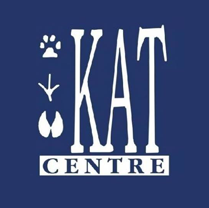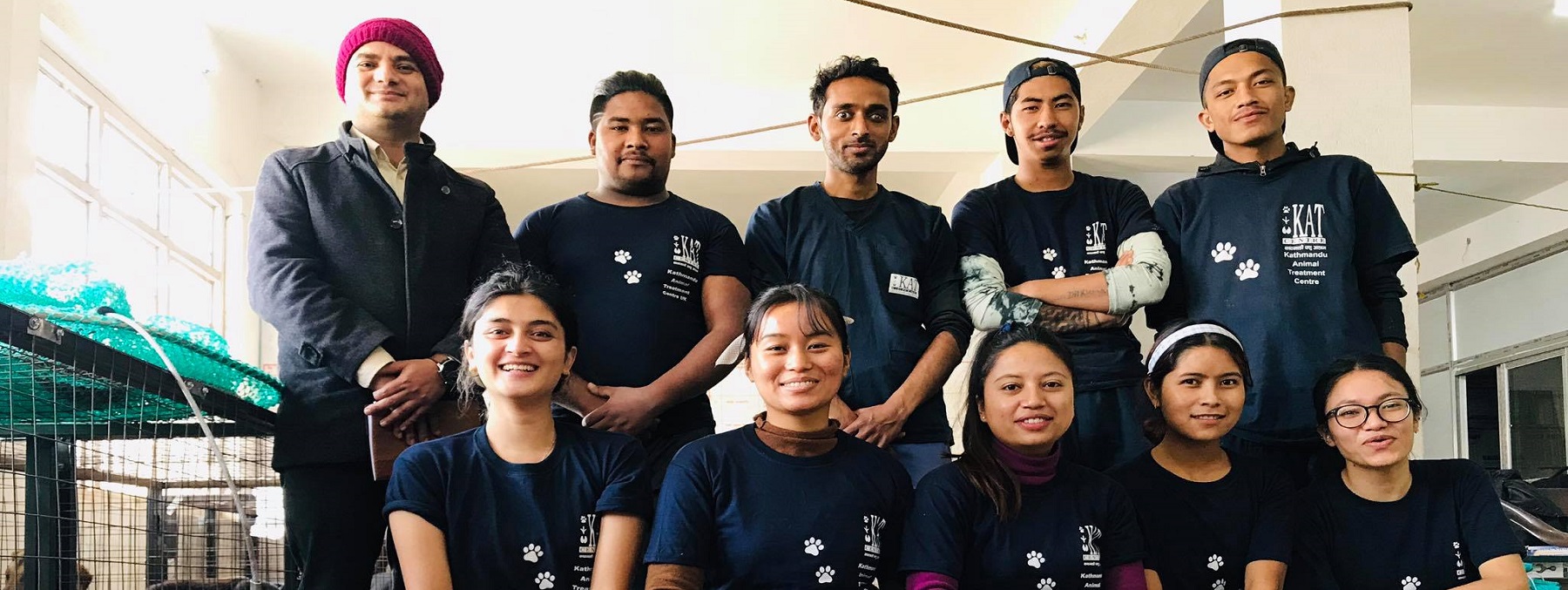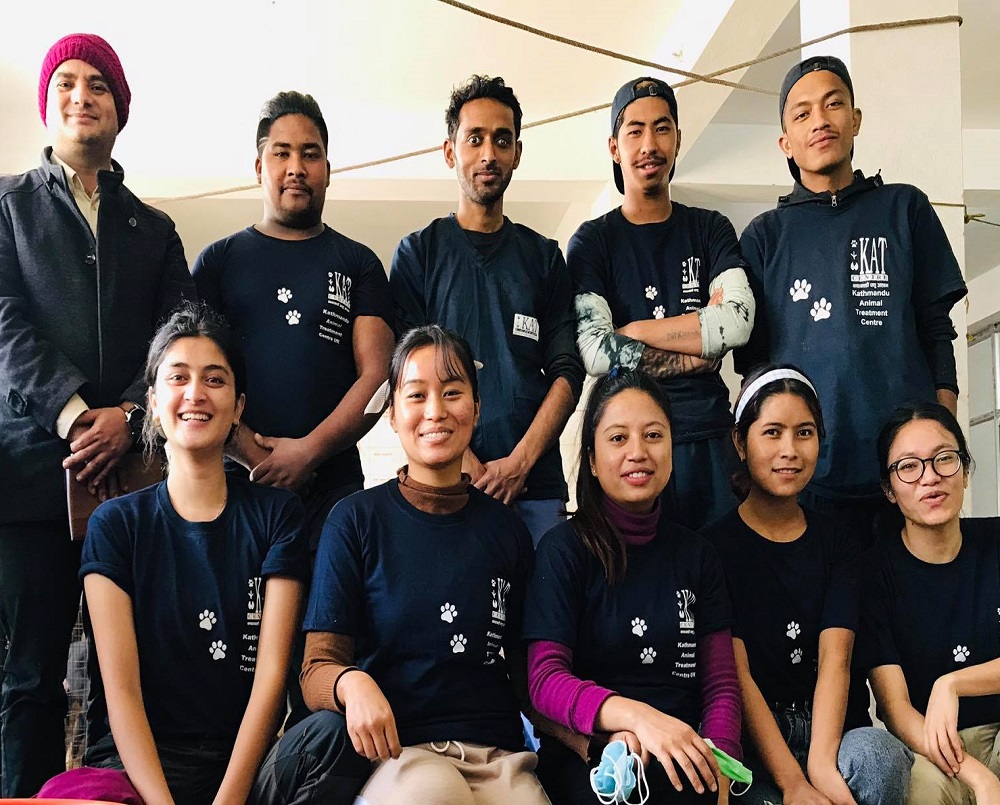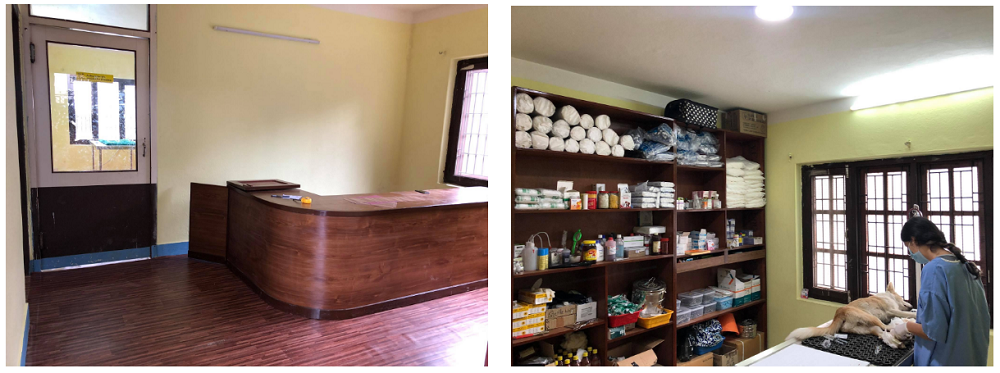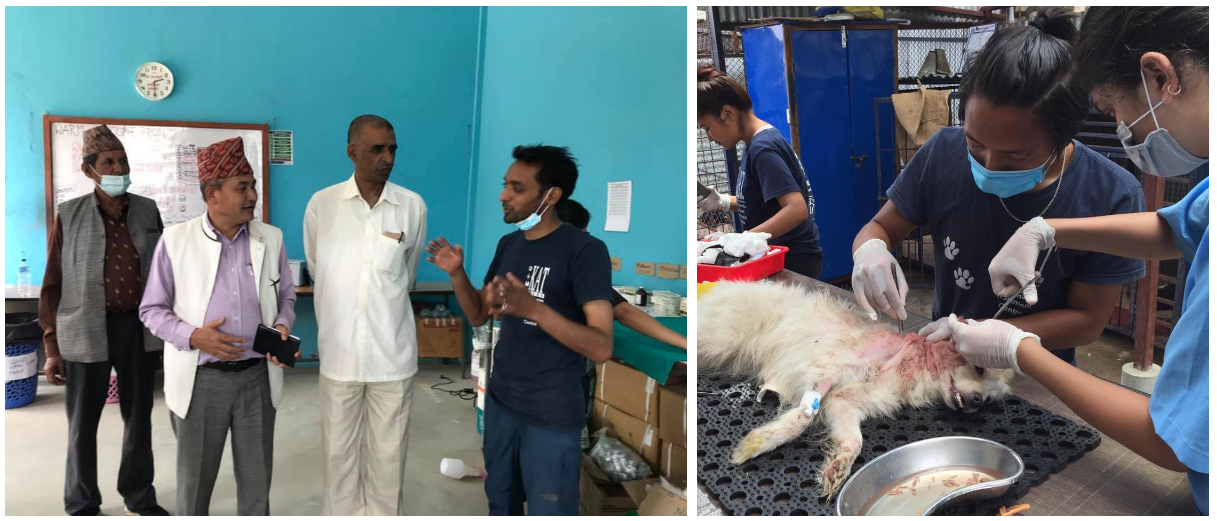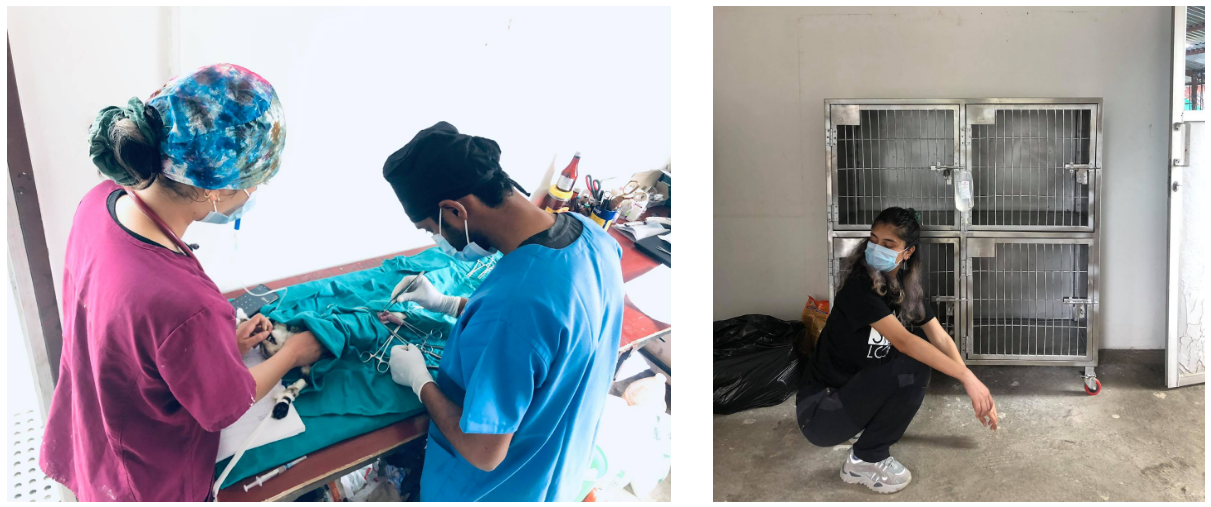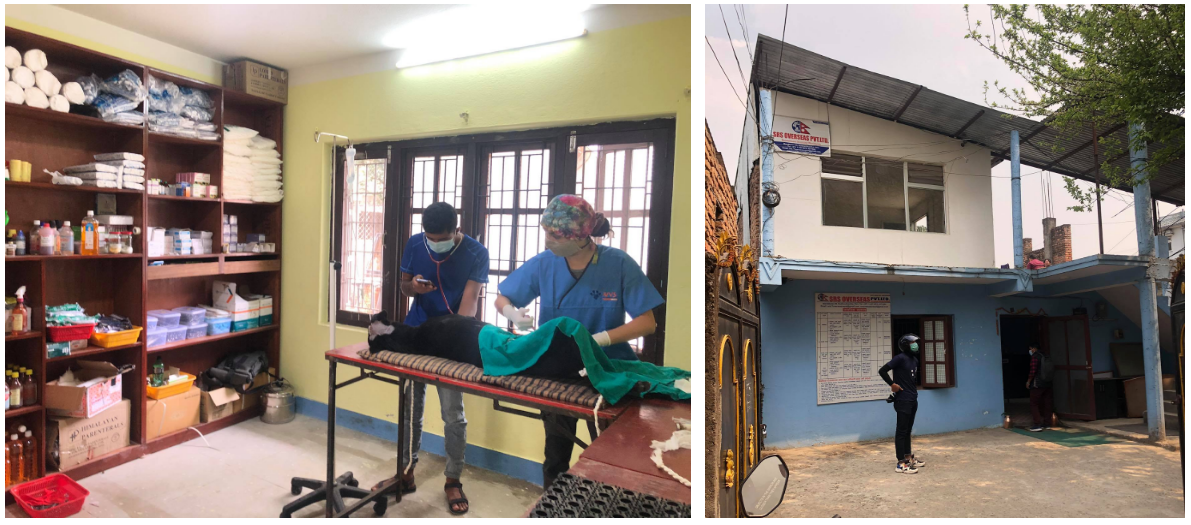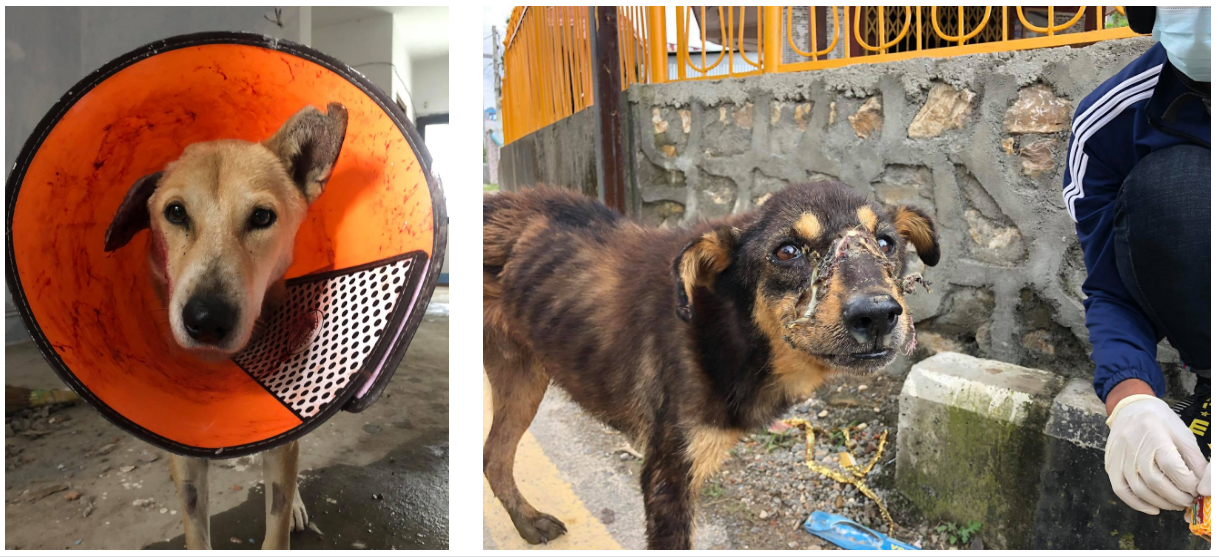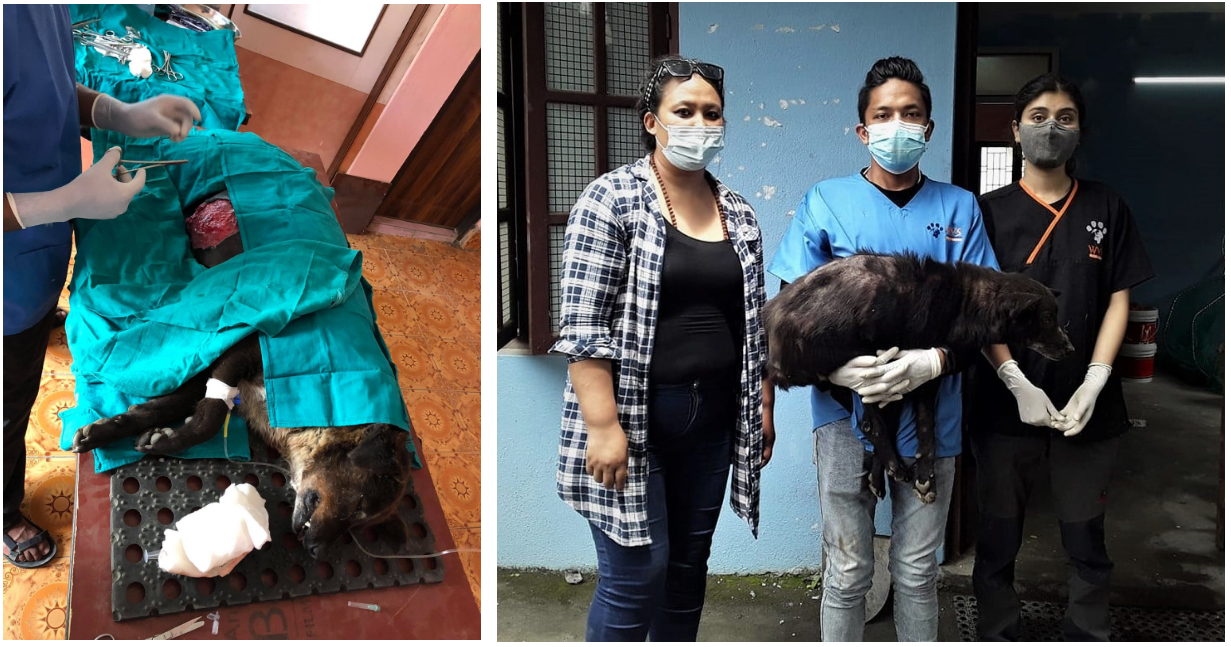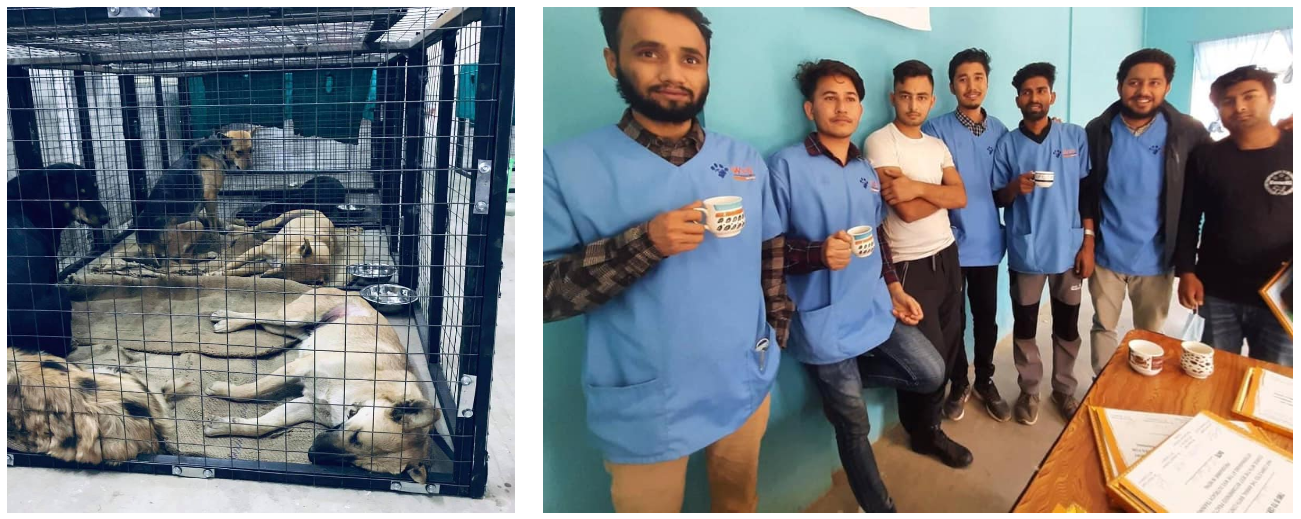Welcome to KATs International Clinic
This is a revolutionary new concept, with the potential to help tens of thousands of animals all across Nepal! Ever since KAT was founded, our work has been in very high demand and more animals need our help than we are able to respond to. The geography in Nepal makes travel time consuming and difficult, with rescues across the other side of Kathmandu taking upto 5 hours to return the case to our centre, which in an emergency situation is not suitable. So in order to reach more and more animals, we are piloting a satellite clinic to expand our reach into more locations across Kathmandu and beyond.
“We need to start thinking differently about helping animals, we treat thousands of animals every year, but there are 100’s of thousands still out there suffering and we need a way of reaching all of them”
We set up this first Clinic in 2021, with the hopes of providing more services to more animals in a way that is cost-effective to have a larger impact on animal welfare. We have developed this new clinic program as a Public-Private Partnership Model, the first of its kind to be used for animals anywhere in Asia. This model is designed to cheaply and effectively provide quality, discount service to the community, pet owners and animal lovers with all income going to treat stray animals so that all animals benefit.
In the past, we have tried to provide affordable services to low-income community members through our registered charity (KAT Centre). However in Nepal animal charities are not allowed to treat pets or private animals, and local veterinarians and Nepali Veterinary Council put up fierce resistance to charities’ involvement in treating pets to ensure it does not affect their income. Most vets in Nepal end up charging excessively high fees, for example some clinics charge 2-3 times the average monthly wage of a Nepali person for providing sub-par sterilization. Unfortunately this has resulted in many of the population not being able to afford to care for their pets, with the majority of pets in Kathmandu going unvaccinated and unsterilized, causing a large rabies risk as well as contributing to the stray breeding problem.
KAT decided to set up a public private partnership by registering both a business and charity at the same address in order to provide low cost spay and neuter services to help improve the health of the pet population and crub overbreeding/cross breeding in the city with stray dogs. This model allows KAT to legally treat pets for profit and provide the necessary tax filings to run a ‘social-enterprise’, as well as collect donations and use the profit for providing services to stray animals.
“Lowering the cost and increasing the coverage of sterilized and vaccinated pet dogs, is now one of KATs one most important barriers we have to overcome in controlling the stray dog population”
There are over 80,000 pet dogs in Kathmandu, the majority unsterilized (compare that to just 23,000 street dogs). Most of these 80,000 pets free-roam during the day, significantly contributing to the breeding and overpopulation of stray dogs in Nepal.
What is a Public-Private Partnership?
A Public-Private Partnership is where a business model and a charity model join forces. Traditionally this is used in the international Development field where human hospitals and clinics offer services to patients and charge a fee, to cover the cost of providing services to people who cannot afford to pay. The hospital and facilities are owned by the charity, but operated by the business, ensuring market driven results- with a profit margin that can be utilised to help those less fortunate. This system is highly sustainable, easily replicated and can reach a huge number of at-risk and poor people, through scaling up a satellite approach- So why not use this model for Animals too?- increase the number of animals that can be helped, both in homes and on the street to bring quality care to all animals and reduce the number able to breed on a massive scale.
The model was conceived on the founding principles of; Sustainability, Scalability and Impact, allowing KAT to open multiple satellite clinics and reach more animals, more cheaply and quicker than ever before. If this concept is shown to provide substantial benefits to animals at a fraction of the cost we have the aim of having multiple satellite clinics all over Nepal in the next 5 years to ensure that we can help more animals who have no one else to rely on.
What Do We Hope To Achieve? (Aim)
The KAT clinic will provide high quality treatment and services at a fraction of the cost, to ensure that all pet owners can afford to be responsible, in getting their furry family member sterilized and healthy. All the proceeds from the KAT hospital go towards treating stray animals ensuring we help both pet and stray animals in a sustainable and compassionate way. Through the provision of both private and stray animal services, we aim to produce a sustainable clinic model, which can self fund its operations (to a degree) and reach animals in locations further and further away as we build this network.
What Are Our Targets? (Objectives)
Using this model, we will once again be able to provide high quality services at affordable rates to all pet owners across Kathmandu helping both pet and stray animals live better lives, increasing sterilization coverage and health in both populations in a way which can be replicated in more and more locations as we grow as an organisation. Our targets will be to provide rescue and treatment services to around 100 stray dogs and services to 50 pet dogs a month. We will then incrementally expand the services we offer to be able to provide a full roster of treatments up to advanced critical care- an area severely lacking in Nepal.
How Will We Expand This Model? (Future)
We provide discounted rates compared to the average cost of basic services in Kathmandu. This is not to undercut other veterinary practices, but we are charging a competitive rate, which we think is fair, affordable and still profitable. Currently the average cost of providing sterilization and vaccination for pet owners in Kathmandu is excessively high and in return the services provided are sub-par and often surgery is not consistent with best practice. We want to lower the cost of providing veterinary care to pets and to help more owner’s access quality services, and at the same time provide benefit to the stray animal population.
